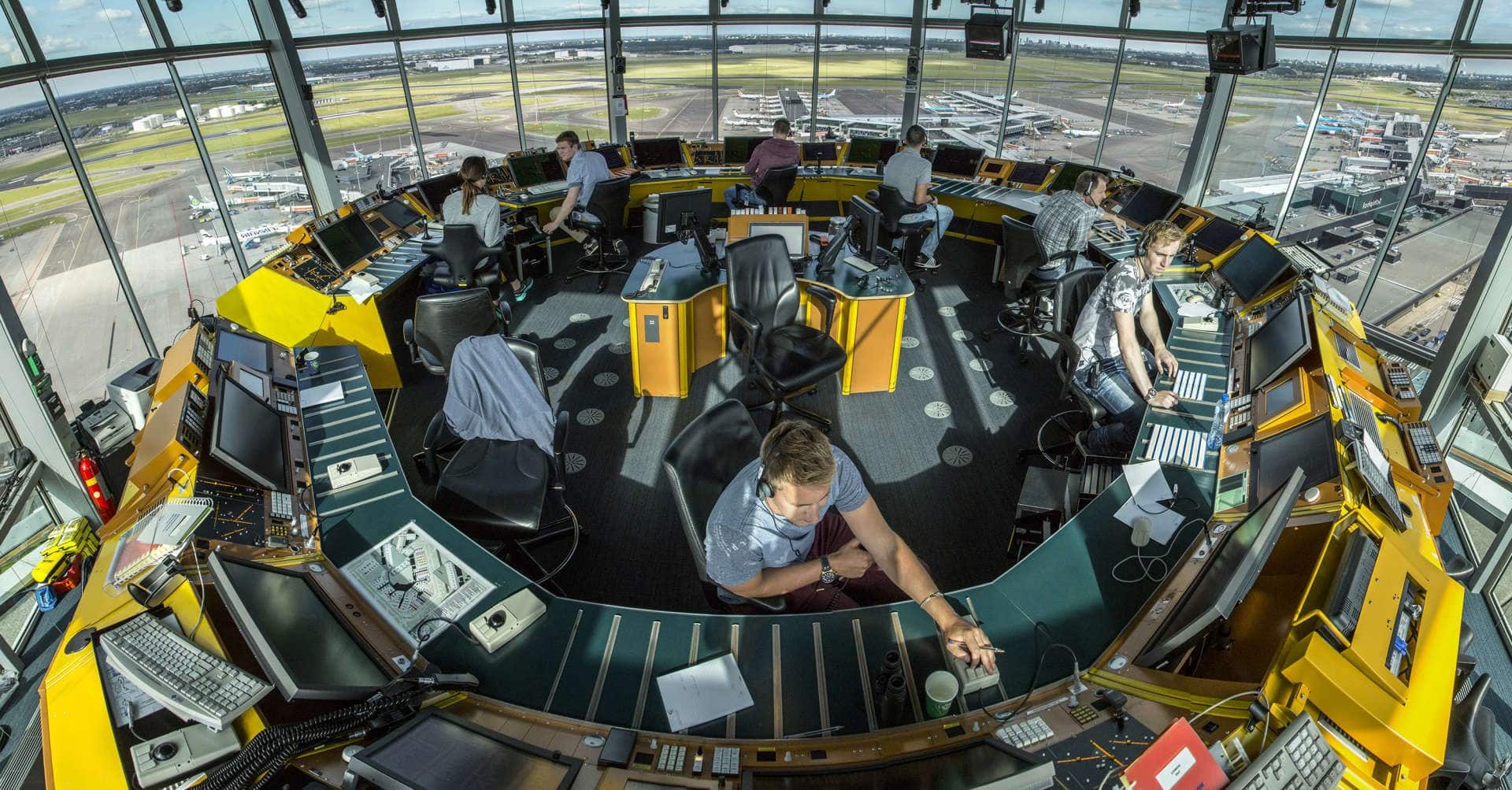
Ever wondered what it takes to keep the skies safe and planes on course? Air traffic controllers play a crucial role in managing the complex web of flights crisscrossing our skies. These professionals ensure that aircraft take off, fly, and land safely, coordinating with pilots and ground crews. But what exactly do they do, and how do they manage such a high-stress job? In this post, we'll share 20 fascinating facts about air traffic controllers that will give you a deeper appreciation for their work. From their rigorous training to the technology they use, you'll learn what makes their job both challenging and essential. Buckle up and get ready to dive into the world of air traffic control!
Key Takeaways:
- Air traffic controllers play a vital role in ensuring safe and efficient air travel by monitoring aircraft, communicating with pilots, and handling emergencies.
- Becoming an air traffic controller requires rigorous training, strict qualifications, and continuous education to work in a high-stress environment with advanced technology and tools.
What Do Air Traffic Controllers Do?
Air traffic controllers play a crucial role in ensuring the safety and efficiency of air travel. They manage the movement of aircraft on the ground and in the sky, coordinating takeoffs, landings, and flight paths.
-
Monitor Aircraft: Controllers use radar and other technology to track aircraft positions, ensuring safe distances between planes.
-
Communicate with Pilots: They provide pilots with vital information, including weather updates, runway conditions, and instructions for takeoff and landing.
-
Coordinate with Other Controllers: Air traffic controllers work in teams, passing information between different control centers to manage flights across various regions.
-
Handle Emergencies: In case of an emergency, controllers guide pilots to safety, coordinating with emergency services if necessary.
Training and Qualifications
Becoming an air traffic controller requires rigorous training and specific qualifications. Here are some key facts about what it takes to enter this demanding profession.
-
Intensive Training: Prospective controllers undergo extensive training, often lasting several years, to learn the necessary skills and knowledge.
-
Strict Qualifications: Candidates must meet strict qualifications, including passing medical and psychological tests, to ensure they can handle the job's demands.
-
Continuous Education: Controllers must regularly update their skills and knowledge through ongoing education and training programs.
Work Environment and Conditions
The work environment for air traffic controllers is unique and comes with its own set of challenges and conditions.
-
High-Stress Environment: The job is highly stressful, requiring quick decision-making and constant concentration.
-
Shift Work: Controllers often work in shifts, including nights, weekends, and holidays, to ensure 24/7 coverage of air traffic.
-
Team Collaboration: They work closely with other controllers and aviation professionals, requiring strong teamwork and communication skills.
Technology and Tools
Air traffic controllers rely on advanced technology and tools to perform their duties effectively.
-
Radar Systems: They use radar systems to monitor aircraft positions and movements in real-time.
-
Communication Equipment: Controllers use sophisticated communication equipment to stay in constant contact with pilots and other control centers.
-
Flight Data Processing Systems: These systems help controllers manage flight plans and track aircraft movements.
Safety and Regulations
Safety is the top priority for air traffic controllers, and they must adhere to strict regulations and protocols.
-
Safety Protocols: Controllers follow strict safety protocols to prevent accidents and ensure the safe movement of aircraft.
-
Regulatory Compliance: They must comply with regulations set by aviation authorities, such as the Federal Aviation Administration (FAA) in the United States.
-
Incident Reporting: Controllers are required to report any incidents or safety concerns to ensure continuous improvement in aviation safety.
Career Prospects and Opportunities
A career as an air traffic controller offers various opportunities and prospects for growth and advancement.
-
Job Stability: The demand for air traffic controllers remains steady, providing job stability and security.
-
Career Advancement: Experienced controllers can advance to supervisory or management positions within the aviation industry.
-
Competitive Salary: Air traffic controllers typically earn competitive salaries, reflecting the job's high level of responsibility and expertise.
-
Global Opportunities: Qualified controllers can find opportunities to work in different countries, contributing to international aviation safety and efficiency.
The Final Approach
Air traffic controllers play a crucial role in keeping our skies safe. Their job demands intense focus, quick decision-making, and excellent communication skills. Controllers manage thousands of flights daily, ensuring that planes take off, fly, and land without incident. They work in control towers, approach control facilities, and en-route centers, each with its own set of responsibilities. Despite the high stress, many find the job rewarding due to its importance and the satisfaction of maintaining safety. Training is rigorous, involving years of education and on-the-job experience. Controllers must stay calm under pressure and adapt to rapidly changing situations. Their work often goes unnoticed, but without them, air travel would be chaotic. Next time you fly, remember the unseen heroes guiding your plane safely through the skies. Their dedication and expertise make modern air travel possible and safe for everyone.
Frequently Asked Questions
Was this page helpful?
Our commitment to delivering trustworthy and engaging content is at the heart of what we do. Each fact on our site is contributed by real users like you, bringing a wealth of diverse insights and information. To ensure the highest standards of accuracy and reliability, our dedicated editors meticulously review each submission. This process guarantees that the facts we share are not only fascinating but also credible. Trust in our commitment to quality and authenticity as you explore and learn with us.


